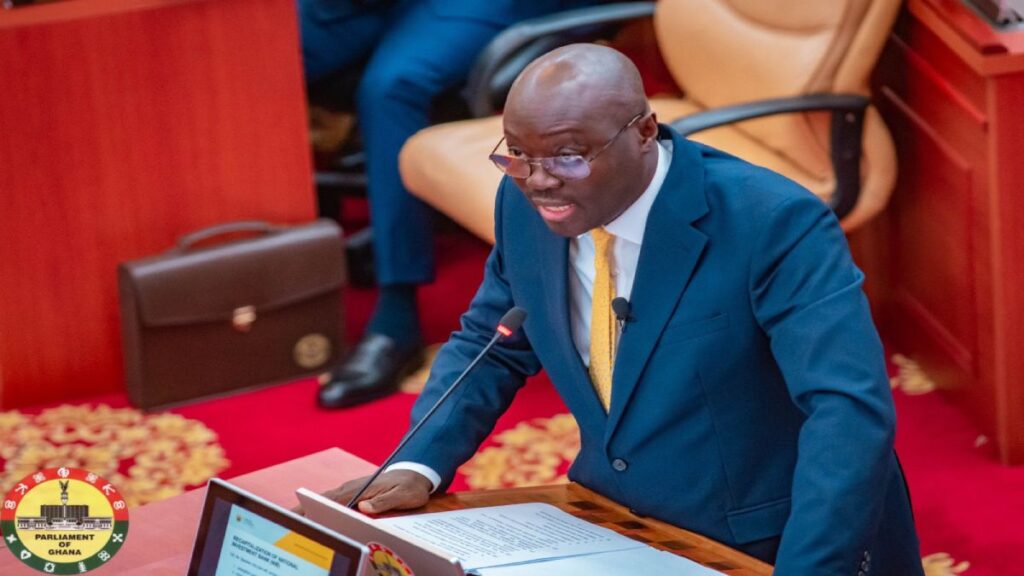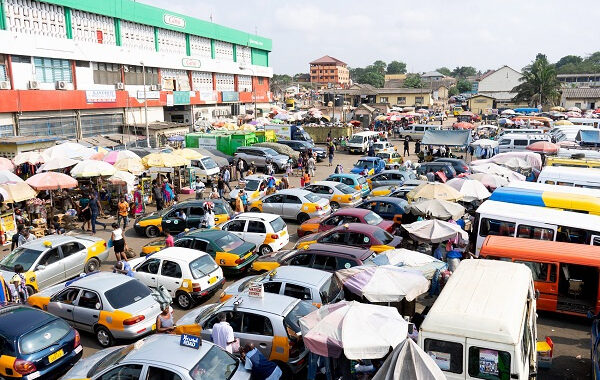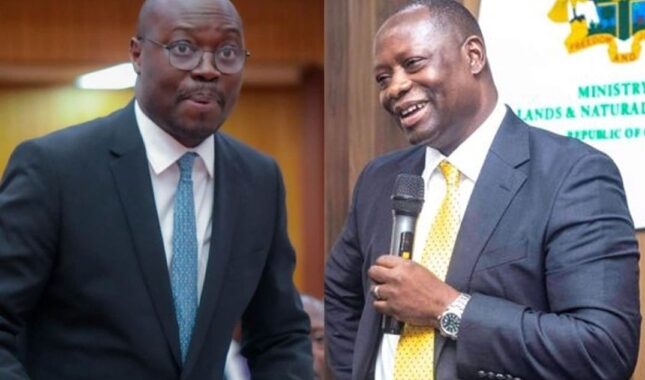Gov’t to use AI at port, land borders after ¢1.6bn customs revenue loss

The Government of Ghana (GoG) is set to introduce Artificial Intelligence (AI) tools at the Tema Port and across Ghana’s land borders, the Minister of Finance, Dr Cassiel Ato Forson, told Parliament on Thursday.
Speaking on the floor of Parliament, the Finance Minister said the move follows a significant shortfall in customs revenue amounting to GH¢1.6 billion, which represents 12.7% of the projected revenue for the first half of 2025.
The Minister in Charge of Finance said the government is therefore implementing several measures to address the challenges and safeguard revenue, including the adoption of Artificial Intelligence (AI) tools.
“AI will be used to minimize human interference in revenue assessment, supporting the validation of country of origin, classification, and valuation of imported goods,’’ he said, presenting the 2025 mid-year budget review.
He added that the advanced cargo information system will enable the Ghana Ports and Harbours Authority (GPHA) and the Ghana Revenue Authority to receive comprehensive shipment details 24 hours prior to vessel departure, facilitating pre-arrival risk assessment and more accurate duty assessments.
The Minister said a nationwide surveillance programme will be implemented to target both inland and maritime borders to prevent smuggling, while reviewing the institutional setup of the Customs Division of the Ghana Revenue Authority, including staff mobility, to enhance transparency and accountability.
These measures, the Finance Minister said, aim to mitigate the risks posed by the revenue shortfall and ensure the attainment of the revenue target for the year.
Below are 10 key points from 2025 Budget review
1. No request for extra funds
Dr Forson told Parliament that the government is not seeking a supplementary budget. Projections for GDP growth (4 per cent), non-oil GDP growth (4.8 per cent), and end-year inflation (11.9 per cent) remain unchanged.
“Mr Speaker, I am not asking for additional money,” he said.
2. Public debt drops by GH¢113.7 billion
Ghana’s total public debt declined from GH¢726.7 billion in December 2024 to GH¢613 billion by June 2025, representing a reduction of GH¢113.7 billion. The debt-to-GDP ratio also fell from 61.8 per cent to 43.8 per cent.
“This is the first time in our history that we are recording a negative debt accumulation rate of 15.6 per cent,” Dr Ato Forson said.
3. GH¢1.6 billion revenue loss at ports
The Minister reported that customs revenue fell short by GH¢1.6 billion due to smuggling and fraudulent practices at the ports, particularly in Tema. He announced the deployment of artificial intelligence and enhanced cargo tracking systems to curb leakages.
4. Audit into 55 stalled infrastructure projects
A forensic audit is underway to investigate 55 stalled projects where contractors accessed loan funds without corresponding work. Some are also reported to have submitted inflated variation claims.
5. GH¢150 million in unearned salaries identified
Payroll audits across all 16 regions revealed over 14,000 unverifiable workers and 53,311 separated staff still drawing salaries. The Ghana Audit Service estimates that at least GH¢150 million in unearned salaries will be recovered.
“Persons who validate ghost names will be held personally liable,” Dr Ato Forson warned.
6. 24 projects to be completed by 2028
The government has identified 24 infrastructure projects, including hospitals, schools, roads, and markets, that are over 70 per cent complete. These will be prioritised for completion by 2028. Dr Ato Forson said no changes will be made to the scope or cost of these projects.
7. Sinking funds set up for debt servicing
Two dedicated sinking fund accounts, one in cedis and one in US dollars, have been established to meet debt obligations due between 2026 and 2028. The move is aimed at reducing pressure on future budgets.
8. Domestic borrowing requirement reduced
The government’s domestic borrowing needs have been revised downwards from GH¢64.1 billion to GH¢59.8 billion. Dr Forson attributed this to improved market conditions and falling treasury bill rates.
9. Energy sector levies to generate GH¢2.9 billion more
Amendments to the Energy Sector Levies Act are expected to yield an additional GH¢2.9 billion, which will go toward clearing arrears and supporting power supply.
10. Ghana’s credit rating improves
Fitch Ratings has upgraded Ghana’s long-term foreign currency issuer rating from ‘Restricted Default’ to ‘B- with a stable outlook’. This marks the first credit rating improvement since 2021.
“This reflects renewed investor confidence in Ghana’s reforms,” Dr Ato Forson stated.

 GRTCC suspends planned ‘August 8’ 20% public transport fare increase
GRTCC suspends planned ‘August 8’ 20% public transport fare increase  State funeral for helicopter crash victims set for August 15 at Black Star Square
State funeral for helicopter crash victims set for August 15 at Black Star Square  Black Queens rank 67th in FIFA ranking despite WAFCON performance
Black Queens rank 67th in FIFA ranking despite WAFCON performance  President Mahama replaces 2 Ministers killed in Military aircraft crash
President Mahama replaces 2 Ministers killed in Military aircraft crash